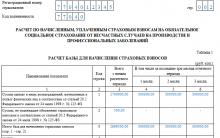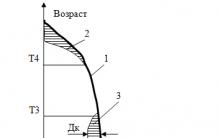SERVICE FOR CHECKING DEBT TO FSSP Moscow St. Petersburg Republic of Adygea Altai Republic Altai region Amur region Arkhangelsk region Astrakhan region Baikonur Republic of Bashkortostan Belgorod region Bryansk region Republic of Buryatia Vladimir region Volgograd region Vologda region Voronezh Region Republic of Dagestan Jewish Autonomous Region Transbaikal Territory Ivanovo Region Republic of Ingushetia Irkutsk Region Kabardino-Balkarian Republic Kaliningrad Region Republic of Kalmykia Kaluga Region Kamchatka Territory Karachay-Cherkess Republic Republic of Karelia Kemerovo region Kirov region Komi Republic Kostroma region Krasnodar region Krasnoyarsk region Republic of Crimea Kurgan region Kursk region Leningrad region Lipetsk region Magadan region Republic of Mari El Republic of Mordovia Moscow region Murmansk region Nenets Autonomous Okrug Nizhny Novgorod region Novgorod region Novosibirsk region Omsk region Orenburg region Orel region Penza region Perm region Primorsky region Pskov region Rostov region Ryazan region Samara region Saratov region Republic of Sakha (Yakutia) Sakhalin region Sverdlovsk region Sevastopol Republic of North Ossetia-Alania Smolensk Region Stavropol Territory Tambov Region Republic of Tatarstan Tver Region Tomsk Region Tula region Republic of Tyva Tyumen region Udmurt Republic Ulyanovsk Region Khabarovsk Territory Republic of Khakassia Khanty-Mansiysk Autonomous Okrug - Yugra Chelyabinsk Region Chechen Republic Chuvash Republic- Chuvashia Chukotka Autonomous Okrug Yamalo-Nenets Autonomous Okrug Yaroslavl Region |
Our legislation is structured in such a way that it is almost impossible for a more or less law-abiding person not to know about established ban to leave, especially to be stunned by this “news” directly at the border. Therefore, calm down: it is unlikely that you will lose your vacation due to the fact that you will not be allowed to travel abroad for debt, and until the moment you leave, you will not know anything about it.
Such a measure as a ban on travel outside of Russia is regulated by Article 15 of the Federal Law of August 15, 1996 No. 114-FZ “On the procedure for leaving Russian Federation and entry into the Russian Federation,” and is applied, as a rule, only as a last resort.
The procedure for imposing travel restrictions is quite complicated. In a nutshell: a travel restriction is not imposed simply because you have an unpaid fine or other debts - it can be applied to you only for failure to fulfill obligations imposed by the court. In other words, first there must be a trial (and you must be invited to it), at the end of which you will be required to pay off your debts. And only then the issue is transferred to the Federal Bailiff Service (FSSP). which based on executive document initiates enforcement proceedings. And only if it is not possible to collect debts by other means, the bailiff applies a travel restriction as a last resort.
It should be noted that in the case of a court decision in absentia (this is when the court hearing is held without your participation), there is still a possibility of being included in the list of “not allowed to travel” and not knowing about it until the last moment. This situation may arise, for example, if you are registered in one place, but live in another, maybe even in another city, and the court cannot reach you in any way to notify you of the upcoming hearing. In this case, the trial will most likely take place without your participation, and the bailiffs, who also cannot find you, will have no choice but to restrict your travel. Again, this action will only be taken if you are a persistent defaulter and defaulter, which means you must be notified of the debt and refuse to pay it.
Thus, despite the fact that we are all constantly frightened by this restriction, and also contrary to the popular belief that for an unpaid hundred-ruble fine you will suddenly be found on the “black list” at the border, in reality everything is not so scary.
If you are not sure whether you have unpaid fines or any other debts and want to find out about it, then it is better to contact the bailiffs. There you can clarify
To find out whether legal proceedings have been initiated against you, to clarify issues related to restrictions on leaving the Russian Federation, as well as to obtain detailed legal information, you must contact the Federal Bailiff Service.
You can come to your local department. But the Internet has made our life easier here too: check the availability of information about yourself in the Data Bank enforcement proceedings You can contact the Federal Bailiff Service without leaving your home on the official website of this department. To find out whether proceedings have been initiated against you or not, select your region of residence (registration) from the list and go to the form online checks debt (the “Check debt” button), into which you will need to enter your data (by the way, the search is possible for both individuals and legal entities). This is how you will find out whether you will be allowed to go abroad or not.
If you have a debt, keep in mind that from the moment you pay the fine until you are removed from the register of debtors, it may take a couple of days or a couple of weeks. Therefore, it is better to approach yourself with payment document to the bailiff and make sure that you are definitely removed from the list of debtors.
If you don’t find any debts on the website, you can travel safely without fear of being stopped at the border.
To summarize, we can draw conclusions:
1. It is better to pay off all debts on time.
2. Despite the fact that the procedure for imposing a restriction on travel is quite complicated, nevertheless, you may find yourself in a situation where you know nothing about the imposed restriction until the last moment.
3. Work on organizing temporary restrictions on the departure of debtors from the Russian Federation is carried out by the Federal Bailiff Service. You can find out about the presence or absence of a temporary restriction on the right to travel outside the Russian Federation in connection with previously existing debts, as well as whether restrictions on travel have been lifted after they have been paid, on the official website of this department.
4. Due to objective factors, after repaying the debt, it is better to independently approach the bailiff with the payment document and check that you have definitely been removed from the list of debtors.
(click to open)
When is it necessary to find a writ of execution?
Reasons for finding enforcement proceedings by number may be as follows:
- shortcomings in the work of bailiffs, sometimes bailiffs may not notify a citizen about the occurrence of a debt;
- The lack of information from the bailiffs about a person’s permanent place of residence also does not allow them to deliver a notice.
In what cases can searching for enforcement proceedings by writ of execution number be useful to citizens:
- Before planning a trip abroad, you should check yourself. Debtors are prohibited from leaving the country.
- If a person misses the deadline for paying a debt, he will be subject to a fine of 5% of the debt. To avoid unnecessary costs, it makes sense to check the availability of the writ of execution and the deadlines specified in it.
- For reinsurance. If a citizen or organization does not want unnecessary communication with bailiffs, then sometimes it is necessary to check information about debts.

How to check a writ of execution by number
When you go to the main page, you will immediately be taken to the “find out about your debts” section. There you enter the data of the desired individual or legal entity, as well as individual entrepreneurs.
If the database manages to find a case by enforcement proceedings number, it will give you a list of data:
- the name of the body that issued the decision and its address;
- IP number;
- details of executive documents;
- date of issue of the writ of execution;
- the amount of debt and its repayment period;
- appeals of the owner of the writ of execution to the bailiffs, if any.
If a person is interested in how to find a bailiff’s order by number, then the answer is simple - exactly the same as writ of execution.

Features of search on the FSSP website
It is not necessary to check the writ of execution by its number. The site's database is equipped with an advanced search, where you can specify all the data about the case you are looking for or some of the information known to it without having the enforcement proceedings number, and the search will produce a list of cases that match the information in the request.
You can enter the following data into the search:
- Full name of the citizen or name of the legal entity;
- registration address;
- number of the writ of execution;
- date of the decision in the case;
- name and address of the authority that made the decision.
The more information you provide in the search, the more accurately and quickly it will give you information. By partially filling out the fields, there is a chance that the search will return quite a few options, which is a waste of your time.
Lawyers advise checking yourself through the database FSSP data every year. This will save you from the consequences associated with late payment debts

Obtaining a writ of execution
When the court makes a decision in favor of the plaintiff, there are two options for what happens to the writ of execution:
- asks the court to forward it to the bailiffs;
- receives it in your hands and delivers it yourself.
The first option is considered unfavorable for the plaintiff. The court may not forward the decision soon, and this gives the defendant the opportunity to hide, cancel accounts, transfer money to inaccessible accounts, etc.
To receive the sheet in your hands, you need to submit a corresponding application to the court office two weeks after the decision is made. A special form and sample are issued at the office.
When receiving a resolution, you should carefully study all the information specified in it. If bailiffs find errors in the data, they will refuse to start the case.
Before handing over the original writ of execution to the bailiffs, it would be a good idea to make a copy for yourself and have it certified by a notary. Having such a copy, it will be easier for you to find out information from the bailiffs about the progress of the case.
Loss of writ of execution
If, having received the decision in your hands, you lose it, then you will have to obtain a duplicate through an additional court hearing, in the same court that made the decision on the case. Both parties will be called to the meeting again, but the failure of the defendant to appear will not be grounds for refusing to issue a duplicate.
Subscribe to the latest news
This service allows you to check an individual for the presence of enforcement proceedings and debts according to the database of the Federal Bailiff Service. To verify, you must enter your full name and date of birth, and select the region of registration of the person being verified. You can obtain information quickly and anonymously, both in relation to yourself and other individuals. How to check a person using the bailiff database In order to verify an individual, you must fill in the fields of the form provided with the appropriate data. Verification can be carried out even on incomplete data of a person. In this case, its result will be a list of all persons corresponding to the entered parameters. After filling out the form fields, you need to click the “Check” button and wait for the results. Verification is carried out using the most current and reliable sources. The result is provided within a few seconds. If the person being checked has no debts to the FSSP, and no enforcement proceedings have been initiated against him, as a result of the check, the system will issue a corresponding message. What information can you get? The result of the check is a table containing the following information about the person being checked: - Full name of the debtor and his date of birth; - Number and date of commencement of enforcement proceedings; - Data of the executive document; - Address and telephone number of the FSSP branch at the debtor’s place of residence; - Name and telephone number of the bailiff. The information in the database is regularly updated and expanded. Verification can be carried out in relation to individuals registered in any region of the Russian Federation.
Why do you need a check using the FSSP database?
Checking the database of executive produces may be required in various cases. Firstly, the service allows you to quickly check your debts and pay them off in a timely manner. The presence of debts in enforcement proceedings can become an obstacle to traveling abroad, the reason for the seizure of property and bank accounts, the imposition of fines and other problems. Therefore, it is very important to find out about your existing debts and pay them off. Secondly, it is possible to check a person when hiring, making a decision on cooperation, collecting personal information, etc. Also this service allows the creditor to check whether the bailiffs have initiated enforcement proceedings against the debtor.What is a bailiff service? Official website of the FSSP. Features of debt verification in the FSSP (bailiffs) in 2019. Debts are always unpleasant, especially if they arise without your knowledge.
Dear readers! The article talks about typical solutions legal issues, but each case is individual. If you want to know how solve exactly your problem- contact a consultant:
APPLICATIONS AND CALLS ARE ACCEPTED 24/7 and 7 days a week.
It's fast and FOR FREE!
A debt for which collection has been filed in court can bring the debtor a lot of troubles associated with a refusal to conclude a transaction or visit other states. Therefore, it is always important to check for their presence, if there are prerequisites for this.
Highlights
One of the methods for checking debts is to contact the FSSP. But if in this case you find yourself on the list of debtors, then keep in mind that legal proceedings have been opened against you and you will be held liable for repayment.
Let's take a closer look at what the Federal Judicial Service is.
What is it
Federal service judicial proceedings in Russia is a representation of the executive branch, which, as a federal government agency performs functions supporting judicial activities.
It performs the following functions:
It is worth noting several points regarding how the FSSP of the Russian Federation carries out its activities:
The Federal Bailiff Service, like most executive authorities, maintains an active information policy, which makes it possible to provide access to the necessary data that is open to a certain circle of persons, in accordance with the law.
Who can use the service
As part of the public information program, the Federal Bailiff Service has created an official website, which allows users to easily obtain the information they are interested in regarding issues of judicial records management in various areas in relation to specific individuals.
One of the functions of the site is to provide information about a person's online availability.
The information presented in the data bank on the website is divided into two groups:
- paperwork for debts of legal entities;
- paperwork for debts of individuals.
This greatly simplifies the search. This server can be used by any person registered and residing in the Russian Federation.
Legal regulation
Like all executive authorities, the Federal Bailiff Service has its own regulatory framework, on the basis of which their activities are organized.
Of course, as mentioned above, the main one is. In addition, a number of standards are presented that regulate the activities of this body itself.
It is presented as a separate server of the FSSP website, which allows you to more efficiently and accurately determine information about debt.
It offers three options for detailed information search on the site:
- individuals;
- legal entities;
- search by enforcement proceedings number.
By selecting one of the items you are interested in, you can fill out the menu that opens. What information is entered into these lines was discussed above.
The data bank allows you not only to search for information about the presence of debt, but also to pay it off.
To do this, you can use a system convenient for you electronic payments, in which you have an account noted.
The main condition is that it operates on the territory of the Russian Federation. You can also use bank payment systems.
After repaying the debt, the information in the data bank should change within 3 to 7 days.
Emerging nuances
When considering proceedings regarding mortgages of individuals and legal entities, a lot of nuances arise. Let's look at the issues that arise in more detail.
One of them is under what circumstances the debt for which enforcement proceedings have been opened can be written off.
This is possible if:
- the debtor has fully repaid the obligation;
- the person is declared insolvent;
- to pay off debts under enforcement proceedings, partial deductions are made from income;
- by a court decision the debt was declared invalid;
- according to the statute of limitations (only in theory, in practice creditors do not allow this option).
It is worth noting that in all of the above cases, except for debt repayment, enforcement proceedings can simply be temporarily suspended or even resumed in case of closure.
Special attention should be paid to the expiration of the statute of limitations for enforcement proceedings. As mentioned above, this option is only possible in theory.
Video: paying debts to bailiffs
In practice, a person who hopes to avoid payment due to these circumstances is included in the list of payment evaders.
As a result, he may face the following types of punishment:
In this regard, it is worth monitoring your debts and paying them on time.
For Moscow
The Federal Bailiff Service operates throughout the Russian Federation. The data bank contains information about all proceedings, regardless of the place of registration of the debtor.
Persons registered in Moscow can use the general website or the FSSP Moscow page. It has the same appearance as a shared server.
And the algorithm for searching is the same. You just don’t need to select a region, you just need to enter personal data – yours or your counterparty’s.
For St. Petersburg
Individuals and legal entities registered in St. Petersburg, as in the case of Moscow, have the opportunity to carry out verification much faster.
They do not need to select a region, since they can use the server using the website. On home page The region of St. Petersburg will be automatically indicated.
It will be enough just to enter the first and last name for individuals or information about the name of the enterprise for legal entities.
In the event of outstanding obligations to other individuals, legal entities or executive authorities, enforcement proceedings may be opened against the debtor.
To prepare for a trip abroad, apply for loans and other important transactions related to finance, complete freedom from debt to the state is required.
Otherwise, debtors will be prohibited from leaving the country and borrowing money from banks.
A wide variety of accidents can happen: even if a citizen has paid off all fines, loans, and utility bills, there is a risk that some debt remains. Checking and collecting debts from the population is the job of bailiffs.
Before applying for a passport or new loan, it is better to inquire whether you have debts to the bailiffs. The Federal Bailiff Service will help you find out your debt.
You can become a debtor in the eyes of the state, not only intentionally and other amounts imposed on a citizen, or.
Even the minimum debt, underpayment, or non-payment for short term, will cause problems with bailiffs.
Often, an individual does not even suspect that he has a debt, becoming a target for bailiffs completely unintentionally.
Loan debts not paid on time result in a lawsuit being filed, which the creditor usually wins, and the debtor has to pay off the debt from his own property. At this moment, the work begins, confiscating and selling the citizen’s property to pay off the debt.
The control of the bailiffs is almost total; this is one of the few services in the country with a fully established system of work, which the bailiffs carry out strictly according to instructions and on time.
For each debtor in the database there is information that is updated weekly - that is, the data is always reliable.
In what cases should you check your debt?
Checking debt with bailiffs is a mandatory procedure for reinsurance if a citizen:

- Planning to cross the border.
- Change your place of residence.
- Take a loan from a bank.
- About to make a deal or do business with someone else legal entity(then you can check the debts of this person).
Even if an individual does not plan any important events related to finances and travel, it is better to regularly check their own debts in order to insure themselves against untimely unpleasant consequences.
How to find out debts from bailiffs through the FSSP website
The algorithm of actions is very simple; any Internet user can cope with this task and find out whether he or his loved ones have a debt.
- First you need to go to the website www.fssprus.ru. This is the portal of the bailiff service, where you can find out the debt by last name and some other data. Here you will need to select the “Database of Enforcement Proceedings” item; the site administration has specially made the button attractive to users; it is simply impossible to miss it.
- After clicking, the user will be provided with short instructions on how to use the site and obtain information on it. A questionnaire form will appear at the bottom of the page, immediately configured to search for information for individuals.
- In the form fields, the user independently enters the necessary data. Among them you will need to indicate territorial body(bailiff service at the place of residence of the person), full name, etc. It is better to fill out the remaining data in the absence of accurate information about the territorial authority.
- After clicking the search button, the user will be directed to a page with data.
Next, there are 2 options: either a table with debts will be displayed individual, or the system will display missing data upon request. The second option means that the citizen has no debts. It is also possible that the data was entered incorrectly.
Is it possible to pay off debt online?
 The bailiff service meets the needs of users of its website, which provides not only for viewing debts, but also for paying them.
The bailiff service meets the needs of users of its website, which provides not only for viewing debts, but also for paying them.
Payments are available using virtual wallets, plastic cards, mobile numbers.
For some types of payment there is a commission, namely:
- Payment through Promsvyazbank provides additional commission– 2.5%. For large amounts of debt, the additional interest may become burdensome.
- Oplatagosuslug is a service that allows you to pay debts public services, the commission is 2.3%.
- ROBOKASSA allows you to make payments from bank and mobile accounts, commission – 3% + 20 rubles on top.
But WebMoney services and Qiwi will allow you to transfer the entire amount to the state account at once, without charging a commission. Unlike bank and mobile payments, where you need to transfer the specified amounts yourself, accurate to the penny, electronic accounts themselves withdraw the required amount.
Having a debt of even 5 kopecks on an account, an individual will still be considered a debtor, so you should be careful when charging money.
How do bailiffs collect debt?
Bailiffs do not come to take away debtors’ property just like that.First, in the case of a debtor who did not pay for a long time his duty, the trial is going on.
If the debtor has not made the payment a month after the judge’s decision, bailiffs are involved and begin proceedings against the individual, about which they send a notification to the latter.
Even at this stage, the citizen is given the opportunity to repay the debt and preserve his own property. If the debt has not been repaid, the bailiffs send a writ of execution to the accounting department at the debtor’s place of work, then from his wages Forced payments will be made. If this is not possible, the bailiff service will seize part of the debtor’s property and then sell it to pay off the debt.











Carrying out an inventory
Ulyukaev, Navka and Patrushev
Income tax refund for treatment: registration procedure and calculation of the deduction amount
Import substitution - what is it?
OSAGO minimum insurance period